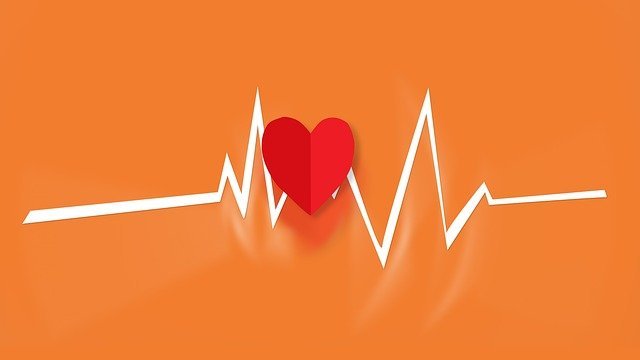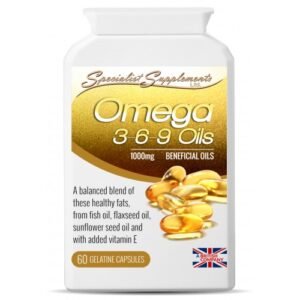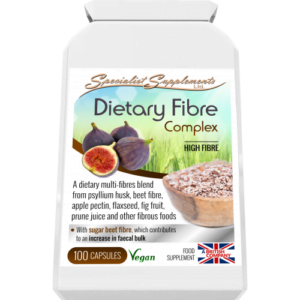Cholesterol and Heart Health Key Takeaways
- Cholesterol is a fatty substance that can build up in the arteries and increase the risk of heart disease.
- There are different types of cholesterol, including LDL (bad) cholesterol, HDL (good) cholesterol, and triglycerides.
- High levels of LDL cholesterol and triglycerides, and low levels of HDL cholesterol, can increase the risk of heart disease.
- Lifestyle changes, such as a healthy diet and regular exercise, can help lower cholesterol and improve heart health.
- It’s important to talk to your doctor about your cholesterol levels and any concerns you may have about your heart health.
Cholesterol is a vital substance that plays a crucial role in maintaining our overall health, especially when it comes to the health of our heart. It is essential to understand the impact of cholesterol on our bodies and its connection to heart disease in order to lead a healthy lifestyle. In this comprehensive blog post, we will delve into the intricacies of cholesterol and its relationship with heart health. We will explore the different types of cholesterol, the effects of high cholesterol on the heart, risk factors for high cholesterol and heart disease, lifestyle changes that can improve heart health, the role of medications, the importance of diet and exercise, monitoring cholesterol levels, and effective communication with healthcare providers about cholesterol and heart health.
Nattokinase Power Complex
Understanding Cholesterol: The Basics
Cholesterol, a vital component of cell membranes, is a waxy substance that our bodies produce and can also be found in select foods. It plays a crucial role in the production of hormones, vitamin D, and bile acids, which aid in digestion. While our liver produces the majority of the cholesterol required by our bodies, animal-based foods like meat, eggs, and dairy products also provide us with this essential substance.
The Link Between Cholesterol and Heart Health
Elevated levels of cholesterol can increase the risk of developing heart disease. When an excessive amount of cholesterol circulates in our bloodstream, it can accumulate on the inner walls of our arteries, forming a plaque. This plaque can gradually narrow the arteries, impeding blood flow to the heart. Ultimately, this can result in severe complications, including angina, heart attack, or stroke.
Types of Cholesterol: LDL, HDL, and Triglycerides
| Cholesterol Type | Definition | Healthy Range | Risk Factors |
|---|---|---|---|
| LDL | Low-density lipoprotein, also known as “bad” cholesterol | Less than 100 mg/dL | Smoking, high blood pressure, diabetes, family history of heart disease |
| HDL | High-density lipoprotein, also known as “good” cholesterol | Greater than 60 mg/dL | Regular exercise, healthy diet, not smoking |
| Triglycerides | A type of fat found in the blood | Less than 150 mg/dL | Obesity, physical inactivity, smoking, excessive alcohol consumption |
There are different types of cholesterol: low-density lipoprotein (LDL), high-density lipoprotein (HDL), and triglycerides. LDL cholesterol is often referred to as “bad” cholesterol because it carries cholesterol from the liver to the cells in our bodies, including the arteries. High levels of LDL cholesterol can contribute to the formation of plaque in the arteries. HDL cholesterol, on the other hand, is known as “good” cholesterol because it helps remove LDL cholesterol from the bloodstream and carries it back to the liver for disposal. Triglycerides are a type of fat found in our blood that can also contribute to heart disease when levels are too high.
How High Cholesterol Affects the Heart

Elevated levels of cholesterol can significantly affect the health of the heart. The accumulation of LDL cholesterol in the arteries can result in atherosclerosis, a condition marked by the narrowing and hardening of the arteries. This impedes the flow of blood to the heart, thereby increasing the likelihood of heart disease. Furthermore, high cholesterol levels can trigger inflammation in the blood vessels, exacerbating the progression of heart disease. Indications of high cholesterol and heart disease may manifest as chest pain, breathlessness, exhaustion, and heart palpitations.
Risk Factors for High Cholesterol and Heart Disease
There are various factors that can heighten the likelihood of developing high cholesterol and heart disease. Genetics can play a crucial role, as certain individuals may have an inherent predisposition to elevated cholesterol levels. Additional risk factors encompass age, gender (with men being more susceptible to high cholesterol), obesity, unhealthy eating habits, insufficient physical activity, smoking, diabetes, and high blood pressure. It is imperative to acknowledge these risk factors and take proactive measures to manage them effectively.
Lifestyle Changes to Lower Cholesterol and Improve Heart Health
Maintaining a healthy lifestyle is crucial for managing cholesterol levels and improving heart health. One of the most effective ways to lower cholesterol is through dietary modifications. A heart-healthy diet should consist of plenty of fruits, vegetables, whole grains, lean proteins, and healthy fats such as those found in nuts and olive oil. It is equally important to avoid saturated and trans fats.
The Role of Diet in Managing Cholesterol and Heart Health
Maintaining healthy cholesterol levels and promoting heart health is heavily influenced by one’s diet. A key component of this is incorporating foods that are abundant in soluble fiber, which can effectively lower LDL cholesterol levels. These foods include oats, barley, legumes, fruits, and vegetables. Additionally, consuming foods that are rich in omega-3 fatty acids, such as fatty fish (such as salmon, mackerel, and sardines), flaxseeds, and chia seeds, can also have a significant positive impact on heart health.
Exercise and Physical Activity for Heart Health
Maintaining a healthy heart is crucial, and regular exercise and physical activity play a vital role in achieving this goal. Engaging in aerobic exercises like brisk walking, running, swimming, or cycling can significantly enhance cardiovascular health and reduce LDL cholesterol levels. Moreover, strength training exercises such as weightlifting or using resistance bands can also contribute to overall heart health. Experts recommend aiming for a minimum of 150 minutes of moderate-intensity aerobic exercise or 75 minutes of vigorous-intensity aerobic exercise per week. Additionally, incorporating strength training exercises two or more days per week can help build muscle and improve heart health. By following these guidelines, you can ensure that your heart remains healthy and strong.
Monitoring Cholesterol Levels: When and How Often
Regular monitoring of cholesterol levels is important for assessing heart health and determining the effectiveness of lifestyle changes or medications. It is generally recommended to have a cholesterol test, also known as a lipid panel, every four to six years for adults over the age of 20. However, if you have risk factors for high cholesterol or heart disease, your healthcare provider may recommend more frequent testing.
Before a cholesterol test, it is important to fast for nine to twelve hours to ensure accurate results. This means avoiding food and drinks (except water) during this fasting period. Your healthcare provider will provide specific instructions on how to prepare for the test.
Talking to Your Doctor About Cholesterol and Heart Health
Effective management of cholesterol and heart health requires open communication with your healthcare provider. During your visit, it is important to ask questions and seek clarification on any concerns you may have. Consider asking about your current and target cholesterol levels, lifestyle changes to improve cholesterol, necessary medications, and frequency of testing. Collaborating with your healthcare provider can provide the necessary guidance and support to manage cholesterol levels effectively and improve heart health. Maintaining healthy cholesterol levels is crucial for reducing the risk of heart disease. Adopting a heart-healthy diet, engaging in regular exercise, and monitoring cholesterol levels can improve heart health. Working closely with your healthcare provider and taking proactive steps can lead to a long and healthy life.
NATURAL VITRAMIN SUPPLEMENTS THAT MAY HELP WITH Cholesterol and Heart Health
-
Product on sale
 Nattokinase Power ComplexOriginal price was: £29.99.£19.99Current price is: £19.99.
Nattokinase Power ComplexOriginal price was: £29.99.£19.99Current price is: £19.99. -
Product on sale
 Omega 3-6-9 Oils Gel CapsulesOriginal price was: £19.99.£12.99Current price is: £12.99.
Omega 3-6-9 Oils Gel CapsulesOriginal price was: £19.99.£12.99Current price is: £12.99. -
 Ashwagandha Botanical Complex Capsules£17.99
Ashwagandha Botanical Complex Capsules£17.99 -
 Antarctic Krill Oil Gel Capsules£17.99
Antarctic Krill Oil Gel Capsules£17.99 -
 Natura Vitamin C Capsules£15.99
Natura Vitamin C Capsules£15.99 -
 GreeNourish Complete Organic Powder Complex£24.99
GreeNourish Complete Organic Powder Complex£24.99 -
 Dietary Fibre Complex v4 (DF120) Caps£12.99
Dietary Fibre Complex v4 (DF120) Caps£12.99












0 Comments